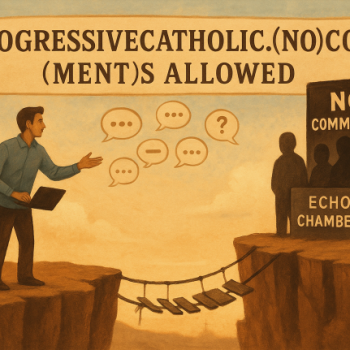Resolved: The blue streak ends right here
I have got to stop swearing, dagnabbit.
Somewhere along the line, my occasional salty language devolved into full-blown potty mouth.
And I guess I’m feeling what some preachers might call “convicted.”
This recent compulsion to clean up my verbal act started at the Wal-Mart in Orem, Utah.
Ah, Wal-Mart! The great equalizer. It brings together a cross-section of Americans all sharing a certain passion for bargains, be they foodstuffs or sweat shirts, floor lamps or electronic gizmos.
Such superstore shopping excursions are, in my vast experience, usually marked by the chaos that accompanies long check-out lines. Screaming children, hollering parents, and agitated shoppers swearing through their malaise in several languages.
But on my quick run to the Orem Wal-Mart for travel-sized conditioner, a disposable camera and a bag of baby carrots during a recent trip to Utah, something was markedly different.
It wasn’t simply the fact that the Orem Wal-Mart, like much of the rest of this decidedly Mormon town that calls itself Family City USA — upward of 90 percent of the population are members of the Church of Jesus Christ of Latter-day Saints — was tidy, orderly and generally pleasant.
It still was crowded by families shopping with gaggles of kids, some of them running, misbehaving and doing what kids often do when confronted with the hyperstimuli of a giant store filled with lots of shiny objects. There were crashing shopping carts, tumbling displays and yelps of “but I want one!”
But amid the din, I heard not a single foul utterance. Not one “dammit” or “hell.” And certainly none of George Carlin’s (in)famous Seven Dirty Words.
It didn’t dawn on me until after I’d returned to suburban Chicago and was, once again, hurling expletives at the driver in front of me on the Eisenhower Expy.
I started to think about my trip to Orem, where a more-or-less unspoken social contract of clean living rules. The “Word of Wisdom” delivered, they say, by God to the Prophet Joseph Smith in 1833 instructs Mormons to abstain from wine, strong drinks, tobacco, and “hot drink,” i.e. coffee.
In Utah, temperance in lifestyle and language alike is a sign of devotion to God.
Certainly not everyone not cussing in Orem was a devout Mormon — I watched my mouth instinctively, as if I were in a convent, and I’m not a Saint. But when it came to the swearing thing, the Utahans I encountered seemed to willingly sacrifice that particular freedom for the sake of the greater good. Or maybe because it would be really gauche. Like cheering in the press box at Wrigley. It’s just not done no matter how much you want to.
Five days in Utah and I never heard anyone cuss, swear or heckle, nor did I see anyone use an obscene finger gesture. I also saw only one person smoking, and she was clearly a tourist, puffing away on a 100 as she walked around Temple Square in Salt Lake City in her short shorts and spaghetti-strap top — another give-away that she wasn’t local.
The whole Mormon/Wal-Mart experience got me thinking about the outward manifestations of faith, the things that supposedly distinguish someone who believes from someone who doesn’t.
It is generally accepted by the great faiths of the world that foul language is, well, unacceptable.
In the Hebrew Scriptures, taking the Lord’s name in vain was a first-rate no-no. Can you imagine if the death penalty still was imposed for that particular infraction?
The Gospel of St. Matthew in the New Testament quotes Jesus as saying, “Listen and understand: It is not what goes into the mouth that defiles a person, but it is what comes out of the mouth that defiles.” Later on, in St. Paul’s letter to the Colossians, he writes, “Put away: anger, wrath, malice, slander, and foul talk from your mouth.”
In Islam, the Quran teaches that God does not like the utterance of bad language, unless one is treated with gross injustice. “God is hearer and knower,” it says.
And the Buddha doesn’t appreciate coarse language either.
Natch. So much for that “colorful” language I’ve been using.
Even if you’re not particularly religious, it’s hard to make an ethical argument in defense of profanity.
This is what Jim O’Connor was telling me on the phone the other day. He’s president of the Cuss Control Academy, which is exactly what it sounds like — a consulting business in Lake Forest that helps people quit “working blue,” as it were.
“My main point is from a non-religious standpoint — it’s just lazy language,” O’Connor said. “So much swearing is expressing some form of negativity. We’re complaining, we’re criticizing, we’re calling somebody nasty names. Swearing is a downer. Not all the time. It can be funny. And it can simply be lazy language.”
Not only am I sinning by swearing a blue streak, I’m also guilty of being a rude, language-devaluing, sloth-brained, buzzkill. Criminy!
“It’s not the words,” O’Connor said. “The words are part of the problem, but I’m always trying to convince people that it’s the tone and the attitude, that it’s the meaning behind the words that’s the problem.”
Clearly I’m in trouble. Help me, cuss-be-gone man!
O’Connor had good news and bad news.
First the bad: “I had trouble finding people who used to swear a lot and now no longer swear.” Seems those of us who don’t habitually use what an Irishman I know demurely called “the percussive side of language” may be somehow predisposed to verbal teetotaling.
“They all had something in common, a very mature approach, a sense of civility, a good disposition that maybe they were fortunate enough to be born with,” O’Connor said. “But I know Mormons who are converts to Mormonism who were foul-mouthed and now they’re not.”
OK, so barring religious conversion and genetic engineering, how do you clean the potty mouth?
O’Connor offers 10 tips at www.cusscontrol.com.
As with all vices, the first step is realizing you have a problem. Check.
Next, eliminate the casual swearing. I’ll have to wear a rubber band on my wrist for that one.
Think positively. Practice being patient. Cope, don’t cuss. Stop complaining. Use alternative words. Make your point politely. Think of what you should have said. And work at it.
Voluntary lobotomy was not on the list.
So it’s clearly time to get my sh … stuff together, and, as they say in Orem, give ’em heck.
Copyright © The Sun-Times Company
All rights reserved. This material may not be published, broadcast, rewritten, or redistributed.














